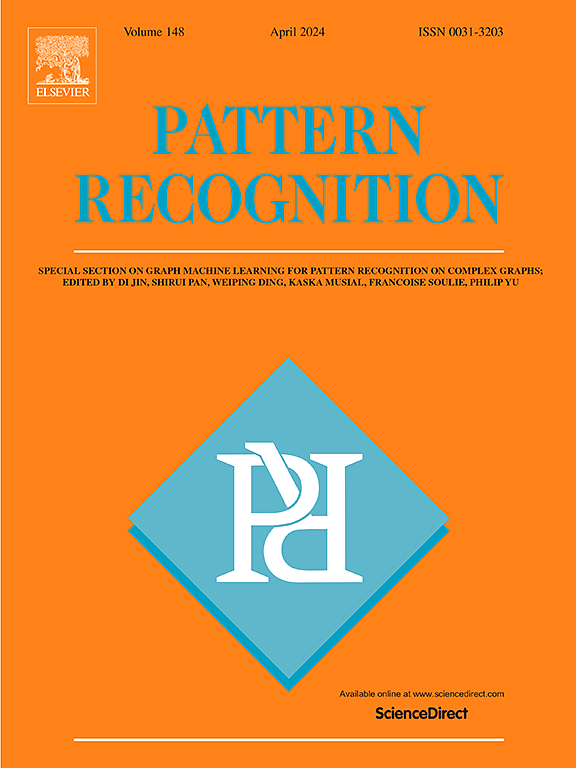Concept-guided domain generalization for semantic segmentation
IF 7.5
1区 计算机科学
Q1 COMPUTER SCIENCE, ARTIFICIAL INTELLIGENCE
引用次数: 0
Abstract
Recent domain generalization semantic segmentation methods are proposed to use vision foundation models (VFMs) for achieving superior performance in unseen domains. However, unlike human vision, which naturally adapts to recognize objects in different contexts, VFMs still suffer from the distribution shift problem. Based on this, a concept-guided domain generalization (CDG) approach is proposed for semantic segmentation. First, considering that humans can recognize objects in various environments after humans learn the conception of objects, a concept token learning module is proposed to learn the semantic concept token from semantic prototypes, which aims to exploit domain-invariant instance-aware knowledge. Second, when the recognition of objects is uncertain, humans recognize the objects by contextual information. Thus, a concept-contextual calibration strategy is proposed to generate concept-contextual relations by the semantic concepts to calibrate uncertain regions for refining final predictions. Extensive experiments demonstrate that the proposed approach achieves superior performance on multiple benchmarks. The code is released on GitHub: https://github.com/seabearlmx/CDG.
概念引导的语义分割领域泛化
最近提出的领域泛化语义分割方法是利用视觉基础模型(VFMs)在未知领域中获得更好的性能。然而,与人类视觉自然适应识别不同背景下的物体不同,虚拟视觉仍然存在分布移位问题。在此基础上,提出了一种概念引导域泛化(CDG)的语义分割方法。首先,考虑到人类在学习对象概念后可以在各种环境中识别对象,提出了概念标记学习模块,从语义原型中学习语义概念标记,旨在开发领域不变的实例感知知识;第二,当物体的识别不确定时,人类通过上下文信息来识别物体。因此,提出了一种概念-上下文校准策略,通过语义概念生成概念-上下文关系来校准不确定区域,以改进最终预测。大量的实验表明,该方法在多个基准测试中取得了优异的性能。代码发布在GitHub: https://github.com/seabearlmx/CDG。
本文章由计算机程序翻译,如有差异,请以英文原文为准。
求助全文
约1分钟内获得全文
求助全文
来源期刊

Pattern Recognition
工程技术-工程:电子与电气
CiteScore
14.40
自引率
16.20%
发文量
683
审稿时长
5.6 months
期刊介绍:
The field of Pattern Recognition is both mature and rapidly evolving, playing a crucial role in various related fields such as computer vision, image processing, text analysis, and neural networks. It closely intersects with machine learning and is being applied in emerging areas like biometrics, bioinformatics, multimedia data analysis, and data science. The journal Pattern Recognition, established half a century ago during the early days of computer science, has since grown significantly in scope and influence.
 求助内容:
求助内容: 应助结果提醒方式:
应助结果提醒方式:


